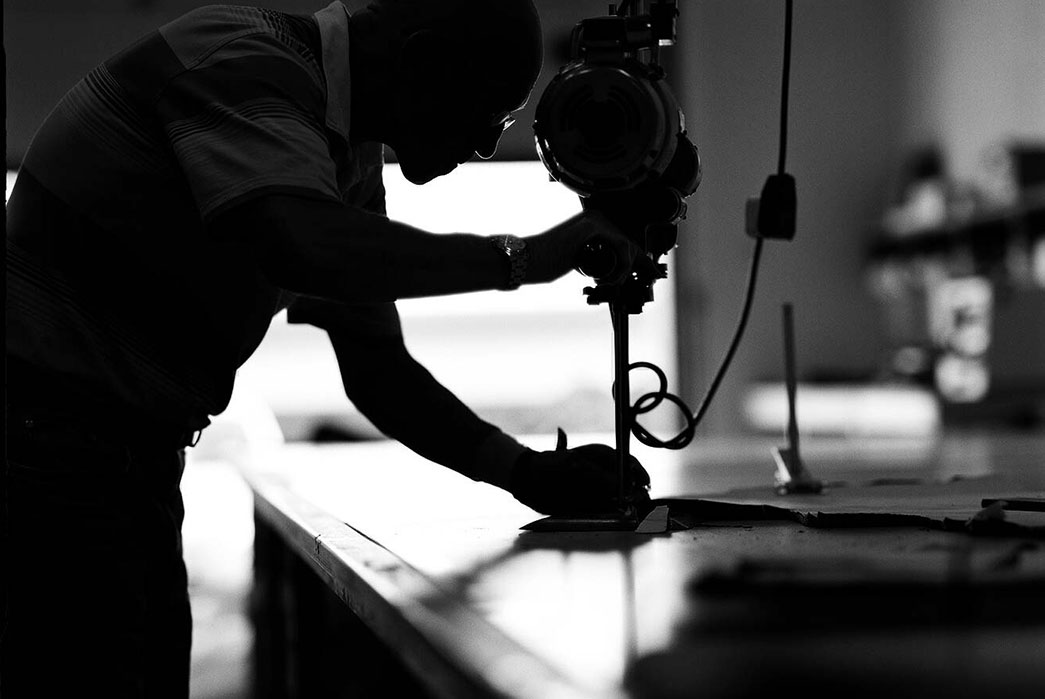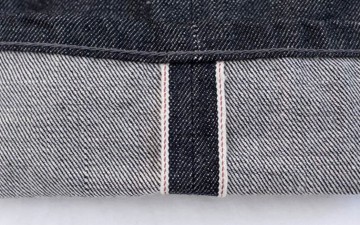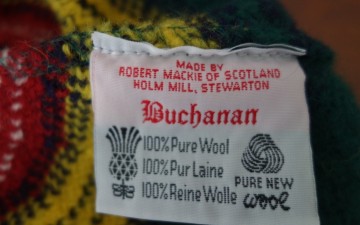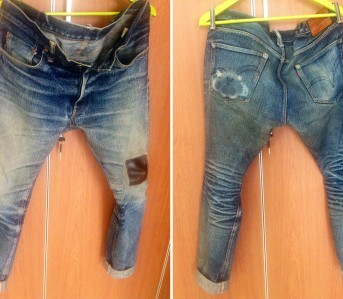White Oak Economy is a monthly column by denim journalist veteran, Amy Leverton where she examines the interplay between the worlds of high end artisanal denim and the mall brands behind them.
I haven’t heard the term, ‘cottage industry’ since the 80s when I was growing up. My mum used to use it a lot and it refers to small, home made products and ‘kitchen table’ brands. Such were the names and phrases in 80s England in those days, invoking the vision of a farmhouse kitchen, a sheep-dog lying on the hearth, and some floral aprons being hand stitched beside the fireplace. Ah, lovely.
Compare this to modern day mass production in state-of-the-art denim facilities around the world and it somewhat ruins the innocent vision, right? According to the website Makers Row, things have changed dramatically in my thirty-five years on Earth. In 1980, 90% of all garments worn in America were made in the United States. In recent years, that number has dropped to 10%. That’s a big carbon footprint shift and a somewhat unhappy ending to the cottage industry ideal.
But as well we all know there’s currently so much talk about getting the innocence back into making again, maybe not the kitchen table bit but at least a move towards smaller factories and the revival of local manufacturing.
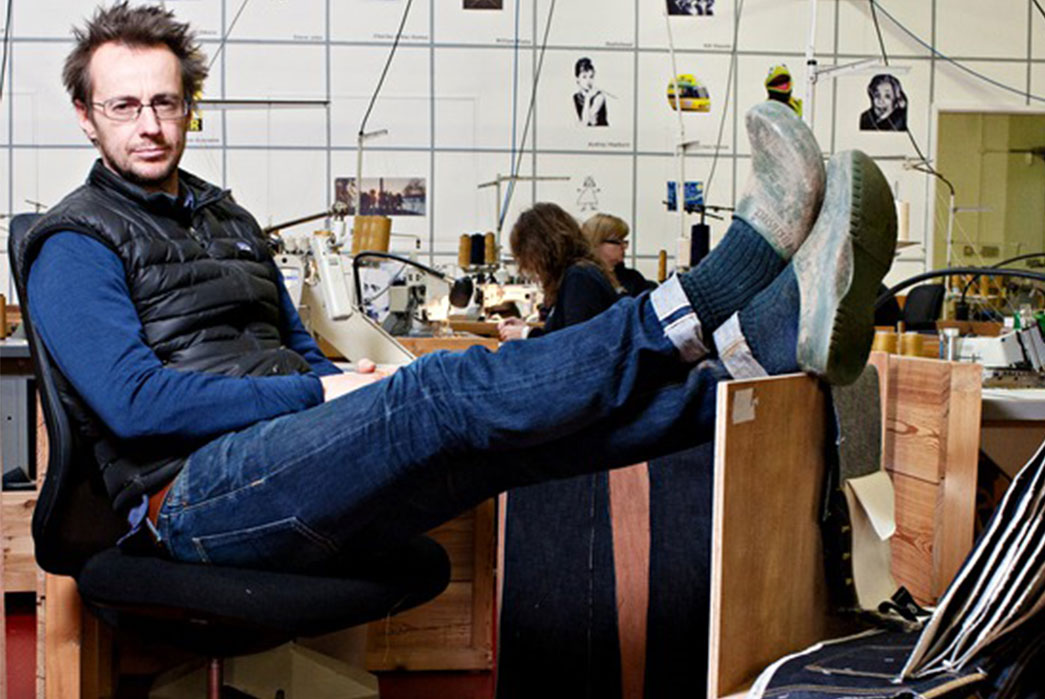
David Hieatt of Hiut Denim
My heart has been warmed by the lovely story of David Hieatt of Hiut Denim in Wales who is now fighting to revive what was once a strong workforce of skilled jean makers in his hometown of Cardigan (there’s a joke in there but I’m not going to make it). They worked for Britain’s largest denim factory, producing 35,000 pairs of jeans a month until the factory closed in 2002, breaking the hearts and spirits of the town. As Hieatt remembers,
“If you are a small town of just 4,000 people, and one day the biggest employer in the town has to lay off 400 people, that is a big dent in the local economy. It also knocks the confidence of the town. It was known as a maker town, and one day 400 world-class makers had nothing to make.”
One of these makers told The Guardian in 2014: the shutdown was “like a bereavement. It ripped the heart out of the town and dumped about 10% of the population on the dole overnight.” Hieatt is doing what he can but he’s alone out there in Wales. He’s so far managed to re-employ ten of the original jean makers but it’s a huge undertaking, “If Hiut can crack the women’s market, we will probably need a bigger factory. I want to get those 390 other people their jobs back,” he says.
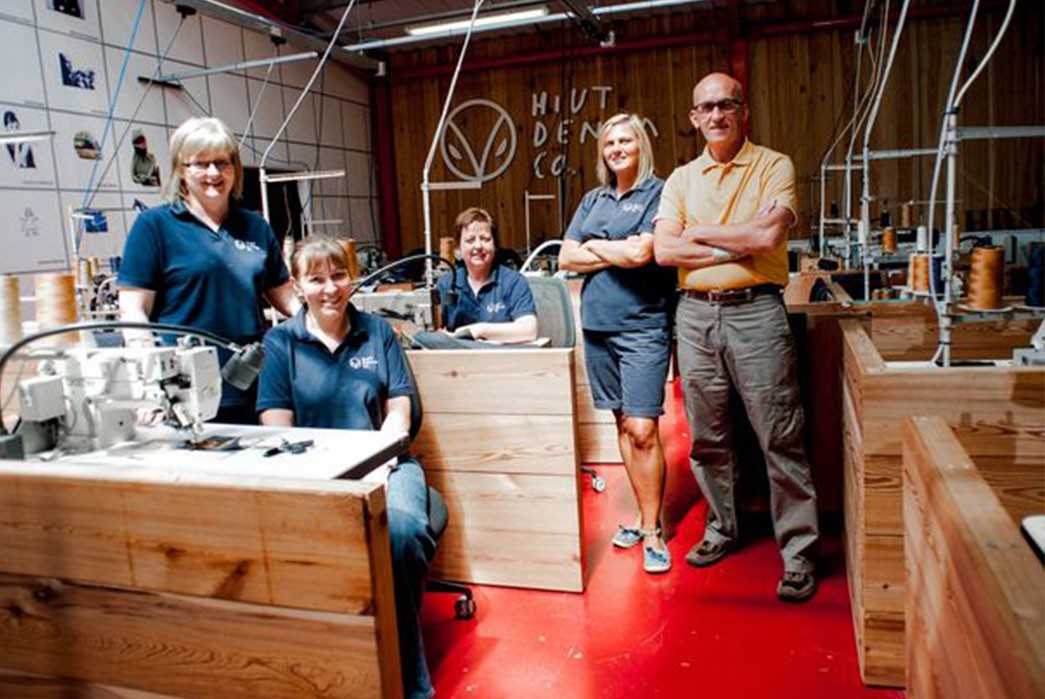
Workers at Hiut Denim’s Wales factory
The Nashville Fashion Alliance was set up in April 2015 to tackle a similar problem in America. Their mission is to unite small businesses and local industry together, pooling resources and creating strength out of a collective of like-minded brands. They tackle the need for a local skilled workforce, help brands with supply chain issues and of course the tricky technique of scaling a business.
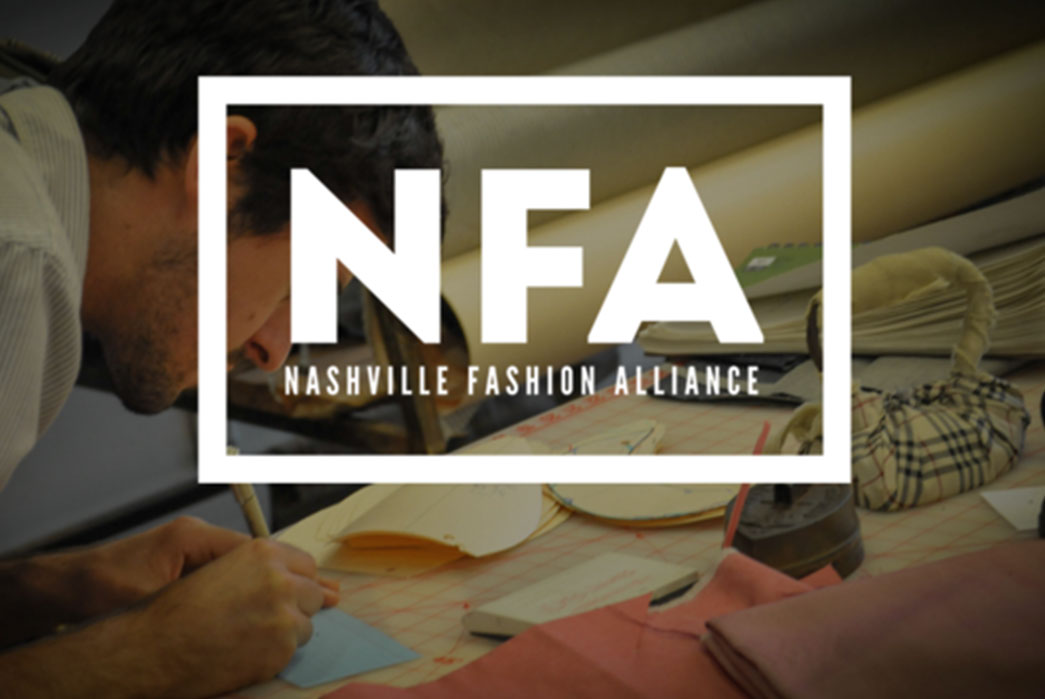
I spoke to Van Tucker, an impassioned and inspired lady who is the CEO of the NFA. Her background is in finance and she had a successful banking career in the entertainment and media industries. She started Avenue Bank that focussed on the local community in Nashville and she has realized “there is no shortage of creative talent in our region” but the lack of infrastructure in the industry is stopping them from doing well.
“Other US industries that have enjoyed huge success such as the tech businesses have done so well because leaders in those fields have built infrastructures that support innovation and start-ups. We don’t have that.
“I recruited a graduate from Vanderbilt’s business MA program and got her to research the local people we knew about. We put together a white paper detailing what a local fashion council could look like and presented it to about 40 local companies. There was an almost unanimously positive reaction. We raised $100,000 on Kickstarter last year, the response has been fantastic.”
So what are the main obstacles hindering this development? First off it’s a skilled workforce, the key stumbling block many small batch brands come across when scaling up.
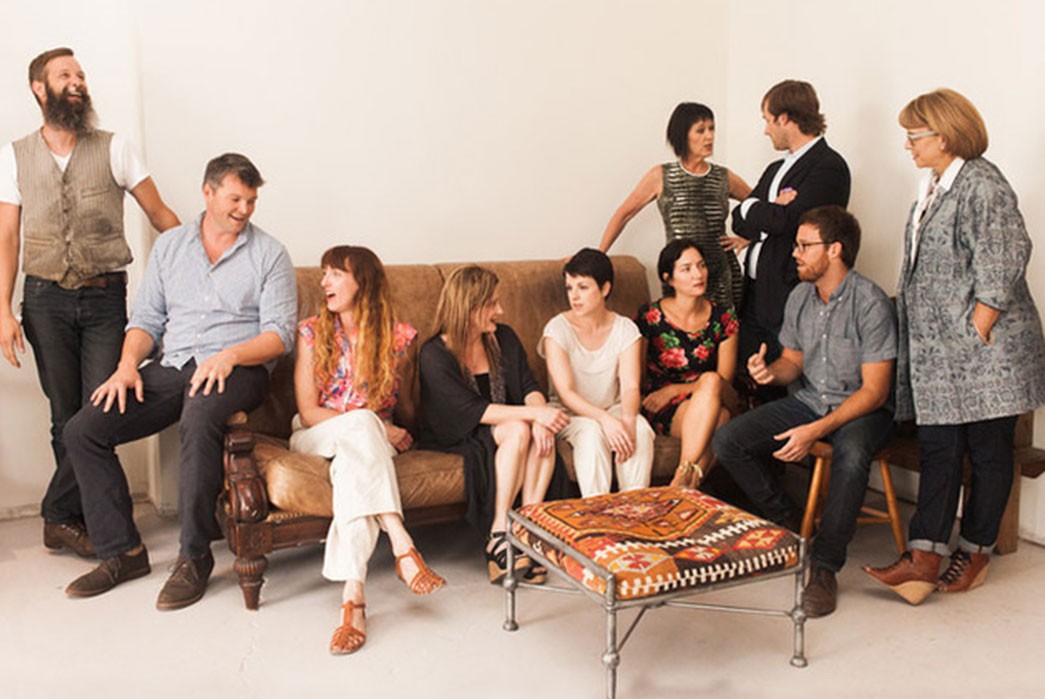
Members of the Nashville Fashion Alliance
At this point it makes sense to mention Imogene + Willie, a brand that seemed to have triumphed over adversity to raise a successful business out of the destruction of their family’s ‘Made in America’ factory in Kentucky. But talking to co-owner and founder Carrie Eddmenson the other day, its clear that the road was and still is a treacherous one, filled with challenges and heartbreak.
“Today, we’ve had to be really precious, yet practical about the analytical side of growth. There are all these capable young brands out there and it scares me to death because they had better be fucking ready, it is hard, it is dirty and honestly… it’s fucked, Amy.”
Strong words and rightly so. It’s clear from everyone that I talked to that the journey from kitchen table to factory floor is a tough one, so let’s start at the bottom and work our way up. The stories above represent a manufacturing shift that is starting to happen all over the world and from the outsider looking in, it does appear to be good news for everyone: small-scale manufacturing works perfectly for the start-up brand as it enables low minimums, season-less scheduling and flexibility. Often proximity between brand and factory is close, making it easier to coordinate production.
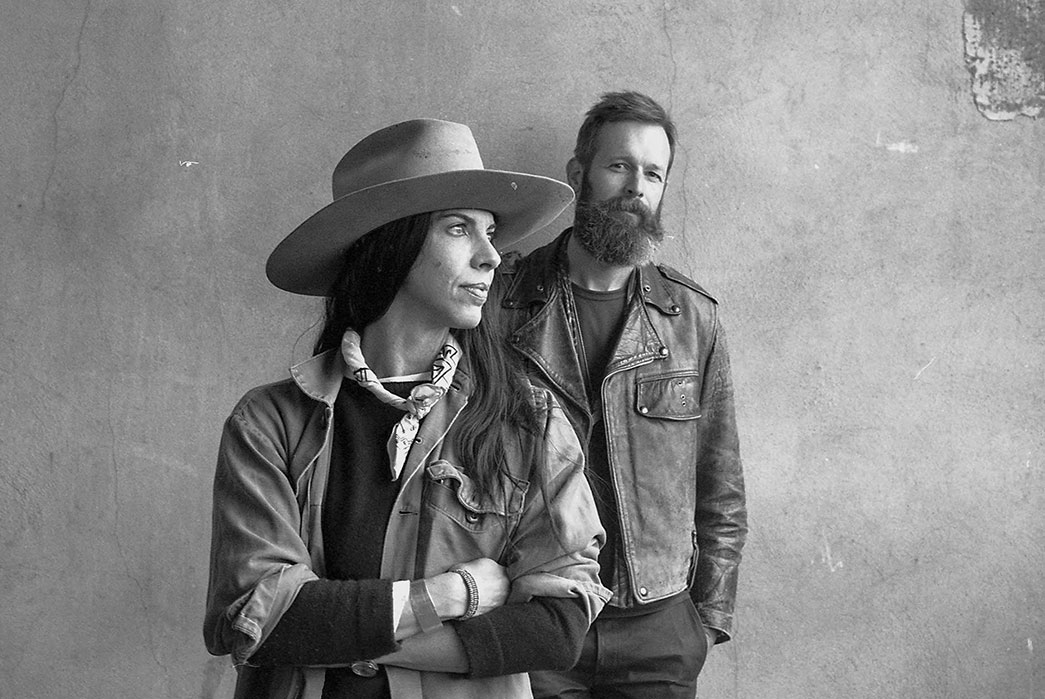
Carrie Eddmenson and her husband Matt, owners and founders of denim brand Imogene + Willie.
For many of these small brands, being right there with your manufacturer is paramount. Carrie continues,
“The only way we’d be able to keep our commitment to our standards and practices is to be with our product. Yesterday there was a problem with button placement, Matt went over to the factory on his motorbike with some tacos and sorted the problem. We have to have that connection with the people who make our jeans.”
But the problem a lot of these brands come across is when they get bigger, as of course they inevitably do if they become popular. Carrie talks about the time Anthropologie came a-knocking and the heartache and stress they endured then is still so tangible today.
“We had so many brands approaching us at that time, they wanted to quickly evoke that same feeling we had created, but with a big operation. We were saying no to offers literally twice a day. Anthro were different, they flew in to visit us, they were kind and enthusiastic, they wanted us to succeed. Before them our output was at say, a 2, Anthro knock on the door and can take you to an 8 in six months.”
But it sadly didn’t work out, to hear the full story, watch the below TED talk but the crux of the issue was finding the infrastructure to scale-up in time to meet the orders.
“As a brand, you have to own a lot of the outright development and rightly so: we had to pre-fund it, prepare for it and when things went wrong, (watch the video!) when we finally got down to the last person in the Anthro finance team and got a no from them, well, we’d already bought our fabric! But we’re not upset with Anthro: it was a gift.”
Sometimes gifts are disguised as hardship but I guess what they’ve learnt from the experience has been worth the heartache. Carrie relates, “Imogene and Willie wouldn’t have been able to continue if we’d stayed home and produced everything in Nashville.” They found their main infrastructure in LA back in 2012 and have been working there ever since, growing week on week and, aside from the odd button placement crisis, they’re rocking it.

Meanwhile, the guys at the NFA (Matt from I+W, incidentally is on the board of directors) are working on turning Nashville into a new center of industry so that brands like I+W and many others like them can make it work: “In August we opened a sewing academy where we train the unemployed, the needy, refugees… anyone who wants and needs work,” says Van, “we currently have over 100 open sewing positions.”
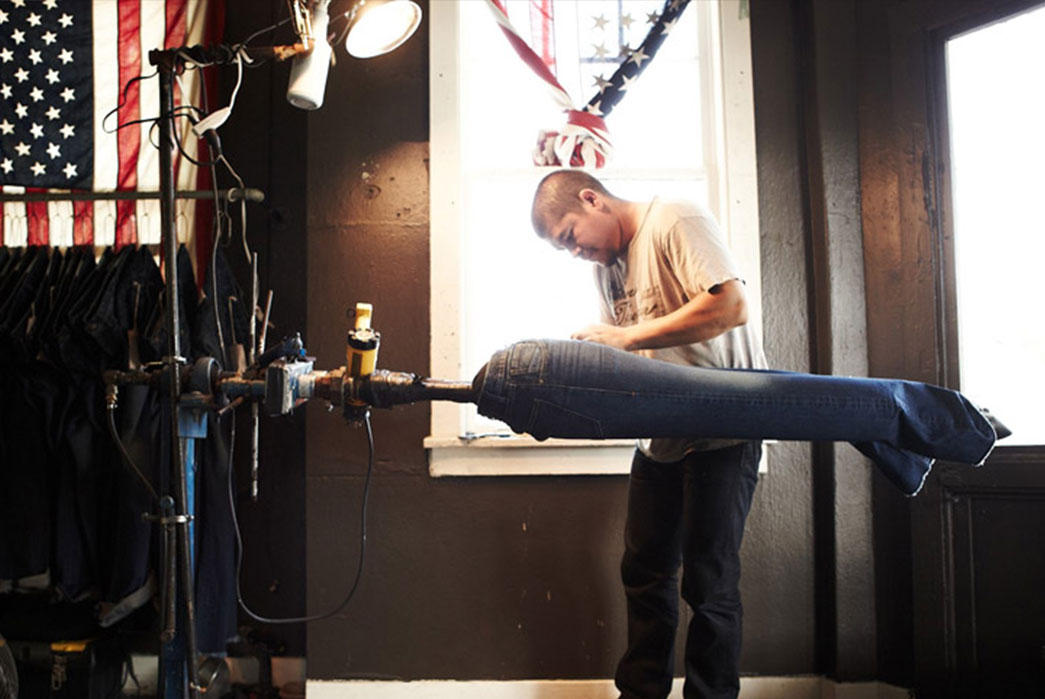
Feeling positive? Great, because this leads me neatly into the next depressing hurdle; the greying of the workforce:
“Our biggest threat is the amount of candles on the birthday cakes around here” – David Hiut
As the standard of living has improved over the past 50 years, we are finding that less and less kids grow up with expectations of working in in a factory. In the US the average age of a factory worker is 56-57–that’s nearly retirement age! And of course this lack of skilled workers in the Western world has further contributed to manufacturing moving abroad.
Which is weird because, as David Hiut says: “Being a maker has never been cooler, I can’t think of anything that the internet is not changing in some way. It is making the march of the makers more doable,” he says. Van agrees:
“Currently, Nashville has the largest concentration of independent fashion brands outside of New York and LA, and most manufacture in their own studio. They don’t have minimums and differentiate themselves on quality. What’s changed recently is the direct link to the customer, which is something the internet has changed over the past 5-10 years. Similar to the music industry, there are many benefits in speaking directly to customers.”
The flipside to the benefits of the web is that everyone wants to create their own brand. You get your Instagram feed looking nice, set up a website on squarespace, open a Kickstarter campaign page and wait for a big blog to come and shoot a video. Easy, right? In today’s internet age, its so much more attractive to set up your own ‘one man brand’ than to work for someone else’s.
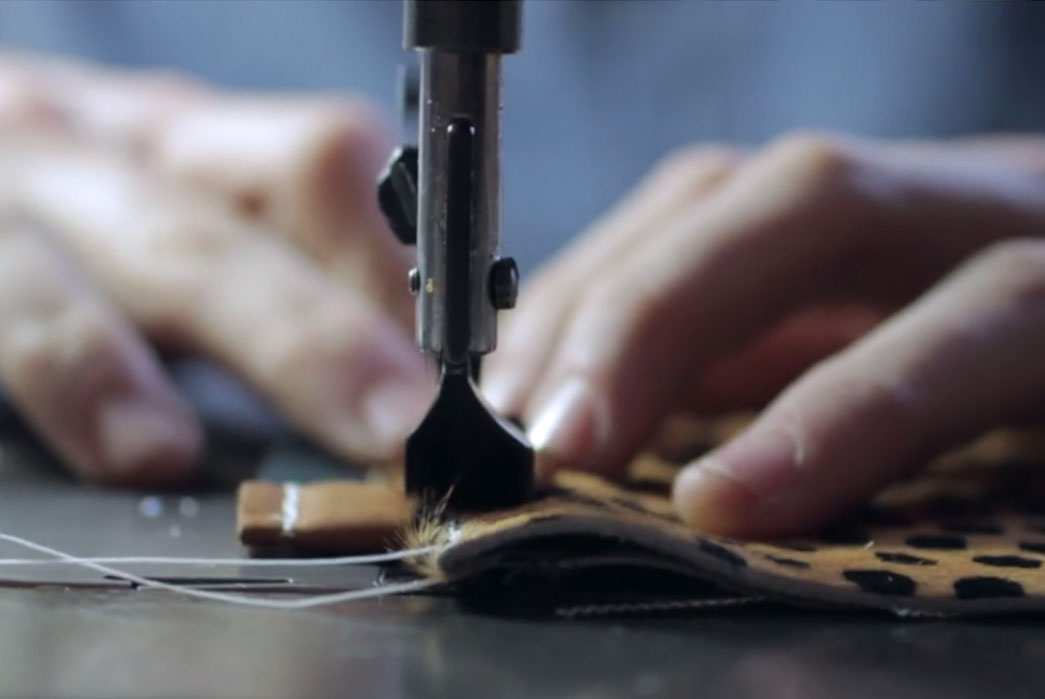
Carrie gives us an example of how it often goes at sewing plants in the south right now now:
“Let’s say Alice is out because of her arthritis and Alice has been with us for for 35 years. To fill in her absence Alice’s granddaughter would be trained but then Alice’s granddaughter would work for a while, get her tax rebate check and leave. So staff retention is a huge problem these days, yet something that we are constantly working on.”
“Jevan and Sam have done it at Tanner Goods.” She says, “There are really cool kids working in their factory.” So I spoke to Tanner’s cofounder Jevan Lautz to find out their secret and it seems like it’s a mixture of empowerment, benefits, freedom and a good old fashioned family vibe.
“Keeping our employees interested and happy is an ongoing conversation that we are very open about. We try to create a family atmosphere here, which in itself fosters a familiar, warm vibe in our workshop and retail stores. As far as the tangibles, we try to offer as many benefits as possible for being a small business; paid time off, 401K, health insurance, plenty of beer and of course the annual company wide trip into the woods for a few days of camping.”
Siting their location in Portland as a “deep pool of young, talented designers and artists” the guys have also really nurtured these workers’ other passions outside of leather making. “Many of them have side projects from fine art, banjo making, upholstery, photography, etc, and by employing them we are empowering them to fuel their creative fire outside of the Tanner Goods workshop,” which is something that bigger, corporate companies are much more wary about. In my past experience working with larger companies, there are non-compete contracts or the discouragement of a life outside of work through some kind of corporate fear, an attitude which in today’s world is increasingly dated.
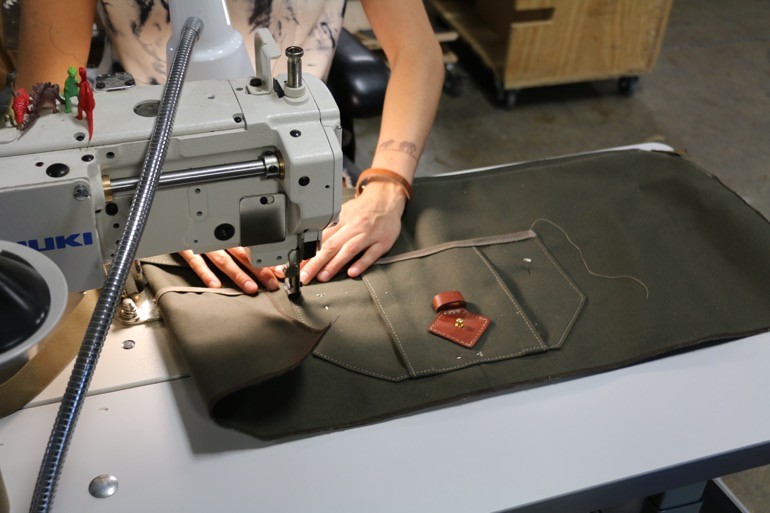
Sewing production inside Tanner Goods’s Portland workshop
So, it’s really about changing the attitude of young, aspiring makers and showing them the joys of working as a machinist, factory worker or wash specialist within a manufacturing plant: “The Sights Denim company’s philosophy was incredible” Carrie recalls of her family’s long-lost business. “The workers inspired themselves so much, they grew up finding confidence that a factory job could be inspiring and fulfilling.”
So back to the cottage industry. Are we, as a rapidly growing human population, moving towards or away from the age of innocent creation? Well there are plenty of people rooting for it, that’s for sure. For every Carrie, Matt, Van, Mike and David, there are hundreds of others wanting this same thing, to mention a few: Noble Denim, Apolis, Dawson Denim, Roy Slaper, Korra, Knickerbocker MFG, Viapiana, Dumluck…the list goes on and on. This really is, as David Hieatt calls it, the ‘march of the makers’.
I asked Carrie if she thinks its possible that proper local industry could rise again:
“It is absolutely possible for those like David Hieatt and Nashville Fashion Alliance to succeed: I have no doubt that these people will succeed… but when the rubber hits the road. It’s the dream we talked about in the Ted talk: we can see what it looks like, we understand it, we are knowledgeable about it but we don’t have the infrastructure to pull it off yet.”
Which leads me to a rather humbling thought that can apply to many aspects of our human development and our strive for change: It can take moments to pull apart an industry in favor of what we think is a cheaper or more efficient alternative but, when we realize too late that it was kinda pretty good to start with, it can take years to put it all back again.
So support these guys, they’ve acknowledged the beauty of industry and are doing something pretty noble with their time on earth to bring it back. We should solute them.
